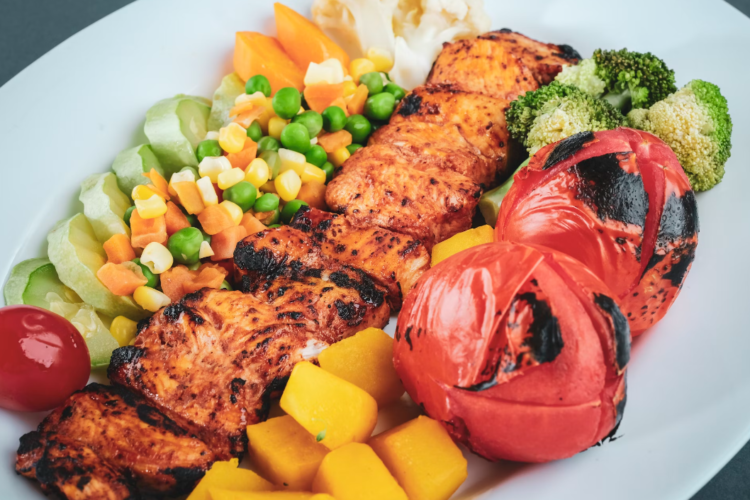Controlling your eating habits is a cornerstone of successful weight loss, but it goes beyond simply restricting calories. This guide explores various strategies to cultivate a mindful and sustainable approach to food, empowering you to take charge of your health and achieve your weight loss goals.
Understanding Your Relationship with Food:
Before embarking on any dietary changes, it’s crucial to understand your current relationship with food. Are you an emotional eater, seeking comfort in food during stressful times? Do you find yourself mindlessly snacking while watching TV? Recognizing your triggers and patterns can help you develop targeted strategies for mindful eating.
Mindfulness and Intuitive Eating:
Mindfulness involves paying close attention to your internal hunger and fullness cues. It’s about slowing down, savoring your food, and eating until you’re comfortably satisfied, not stuffed. Intuitive eating encourages you to reconnect with your body’s natural hunger and fullness signals, allowing you to make conscious choices based on your internal needs rather than external cues.
Strategies for Controlled Eating:
- Portion Control:
- Use smaller plates and bowls: This can create the illusion of a larger portion while helping you consume less food.
- Measure and pre-portion: Measure out your intended serving sizes beforehand to avoid overeating.
- Read food labels: Pay attention to serving sizes and calorie counts to make informed choices.
- Focus on nutrient density: Prioritize nutrient-rich foods like fruits, vegetables, and whole grains that keep you feeling full for longer.
- Mindful Eating Practices:
- Eat slowly and savor each bite: Chew your food thoroughly, allowing your body to register satiety signals.
- Minimize distractions: Avoid eating while watching TV, working on your computer, or using your phone.
- Focus on the present moment: Be present during meals, pay attention to the taste, texture, and aroma of your food.
- Stop before you’re stuffed: Aim to feel comfortably satisfied, not overly full, at the end of each meal.
- Strategies for Hunger Management:
- Stay hydrated: Drinking plenty of water can help curb false hunger pangs and prevent overeating.
- Plan your meals and snacks: Having healthy options readily available can prevent resorting to unhealthy choices when hunger strikes.
- Include protein and fiber in your diet: These nutrients promote satiety and keep you feeling full for longer.
- Manage stress effectively: Find healthy ways to manage stress, as stress hormones can trigger overeating.
- Curbing Cravings:
- Identify your triggers: Are you more likely to crave sugary snacks when stressed or bored? Recognize your triggers and develop alternative coping mechanisms.
- Choose healthy alternatives: Craving sweets? Opt for fruits with natural sweetness or dark chocolate squares.
- Address underlying issues: Unhealthy cravings may sometimes stem from emotional or nutritional deficiencies. Consult a healthcare professional if you experience persistent cravings.
- Building Sustainable Habits:
- Focus on gradual changes: Making drastic changes is often unsustainable. Start with small, achievable modifications and gradually build upon your successes.
- Don’t deprive yourself completely: Allow yourself occasional treats in moderation to avoid feeling deprived, which can lead to overeating later.
- Find joy in healthy eating: Explore new recipes, experiment with different cuisines, and make healthy food choices enjoyable and satisfying.
- Celebrate non-scale victories: Focus on progress beyond just the number on the scale. Celebrate improvements in energy levels, mood, and clothing size.
Additional Tips:
- Incorporate mindful movement: Regular physical activity can not only help with weight loss but also improve your mood and reduce stress, potentially reducing cravings.
- Get enough sleep: When sleep-deprived, your body produces more ghrelin (hunger hormone) and less leptin (satiety hormone), leading to increased cravings.
- Seek professional guidance: Consider working with a registered dietitian or a licensed therapist specializing in food and weight management for personalized guidance and support.
Remember, controlling your eating habits is not about restrictive dieting but about developing a healthy and mindful relationship with food. By incorporating these strategies into your lifestyle and focusing on creating sustainable habits, you can achieve healthy weight loss and improve your overall well-being.
This post was written by a professional at Revo Weight Loss. Revo Weight Loss blends the power of Weight Loss Clinic St Petersburg FL with a holistic approach to wellness. Their unique mission is to guide and support you on your path to lasting health and wellness. With the transformative potential of Semaglutide at our core, along with a suite of services including IV therapy, advanced skincare, and expert permanent makeup, we are dedicated to creating a comprehensive wellness experience that empowers you to not only achieve your weight loss goals but also rejuvenate your overall well-being. Revo’s mission is to help you look, feel, and live your best, inside and out.

